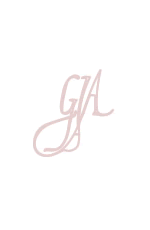- |
User Links
Father, whose everlasting love

Father, whose everlasting love
Author: Charles WesleyPublished in 28 hymnals
Printable scores: PDF, MusicXMLAudio files: MIDI
Representative Text
1 Father, whose everlasting Love
Your only Son for sinners gave,
whose grace to all did freely move,
and sent Him to the world to save.
2 Help us Your mercy to extol,
immense, unfathomed, unconfined;
to praise the Lamb who died for all,
the Savior of all humankind.
3 Your undistinguishing regard
was cast on Adam's fallen race;
for all You have in Christ prepared
sufficient, sov'reign, saving grace.
4 The world He suffered to redeem;
for all He has atonement made;
for those that will not come to Him
the ransom of his life was paid.
5 Arise, O God, maintain Your cause!
The fulness of the nations call;
lift up the standard of Your cross,
and all shall own You died for all.
Source: Our Great Redeemer's Praise #53
Author: Charles Wesley
 Charles Wesley, M.A. was the great hymn-writer of the Wesley family, perhaps, taking quantity and quality into consideration, the great hymn-writer of all ages. Charles Wesley was the youngest son and 18th child of Samuel and Susanna Wesley, and was born at Epworth Rectory, Dec. 18, 1707. In 1716 he went to Westminster School, being provided with a home and board by his elder brother Samuel, then usher at the school, until 1721, when he was elected King's Scholar, and as such received his board and education free. In 1726 Charles Wesley was elected to a Westminster studentship at Christ Church, Oxford, where he took his degree in 1729, and became a college tutor. In the early part of the same year his religious impressions were much deepene… Go to person page >
Charles Wesley, M.A. was the great hymn-writer of the Wesley family, perhaps, taking quantity and quality into consideration, the great hymn-writer of all ages. Charles Wesley was the youngest son and 18th child of Samuel and Susanna Wesley, and was born at Epworth Rectory, Dec. 18, 1707. In 1716 he went to Westminster School, being provided with a home and board by his elder brother Samuel, then usher at the school, until 1721, when he was elected King's Scholar, and as such received his board and education free. In 1726 Charles Wesley was elected to a Westminster studentship at Christ Church, Oxford, where he took his degree in 1729, and became a college tutor. In the early part of the same year his religious impressions were much deepene… Go to person page >Text Information
| First Line: | Father, whose everlasting love |
| Author: | Charles Wesley |
| Language: | English |
| Copyright: | Public Domain |
Notes
Father, Whose everlasting love. Thy only Son, &c. C. Wesley. [Praise for Redemption.] Appeared in his tract Hymns on God's Everlasting Love, 1741, in 17 stanzas of 4 lines, No. i. It was afterwards reprinted in the Arminian Magazine, 1778, p. 430. Sometime after J. Wesley's death, but before 1809, stanzas i.-iii., viii., xii., and xvii., were given in the Wesleyan Hymn Book, in a slightly altered form. The cento is also found in other collections. Original text in Poetical Works, vol. iii. p. 3.
--John Julian, Dictionary of Hymnology (1907)
Access an additional article on the Canterbury Dictionary of Hymnology:
Tune
MELCOMBE (Webbe)Also known as: ST. PHILIPS BENEDICTION GRANTON NAZARETH MELCOMBE was first used as an anonymous chant tune (with figured bass) in the Roman Catholic Mass and was published in 1782 in An Essay on the Church Plain Chant. It was first ascribed to Samuel Webbe (the elder; b. London, England, 1740; d.…


 My Starred Hymns
My Starred Hymns





